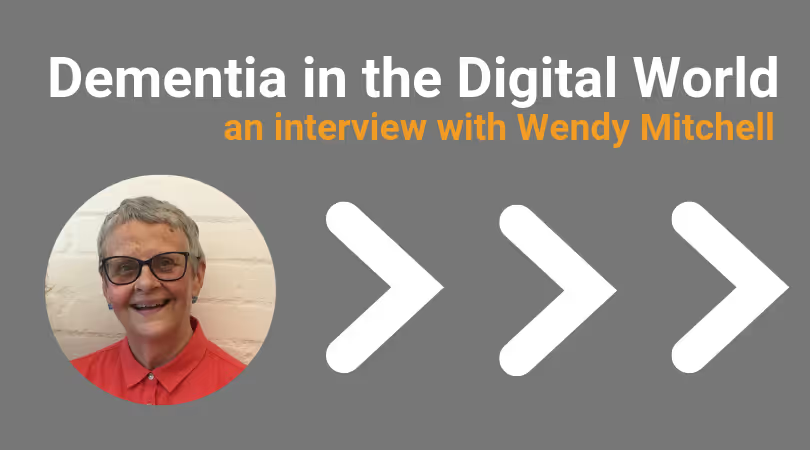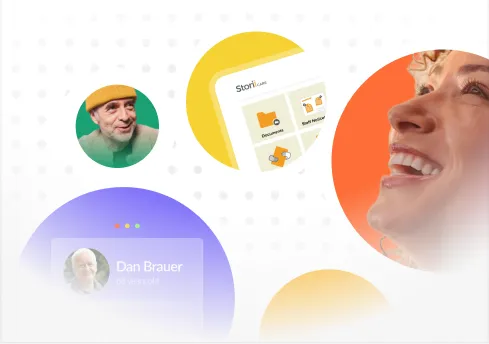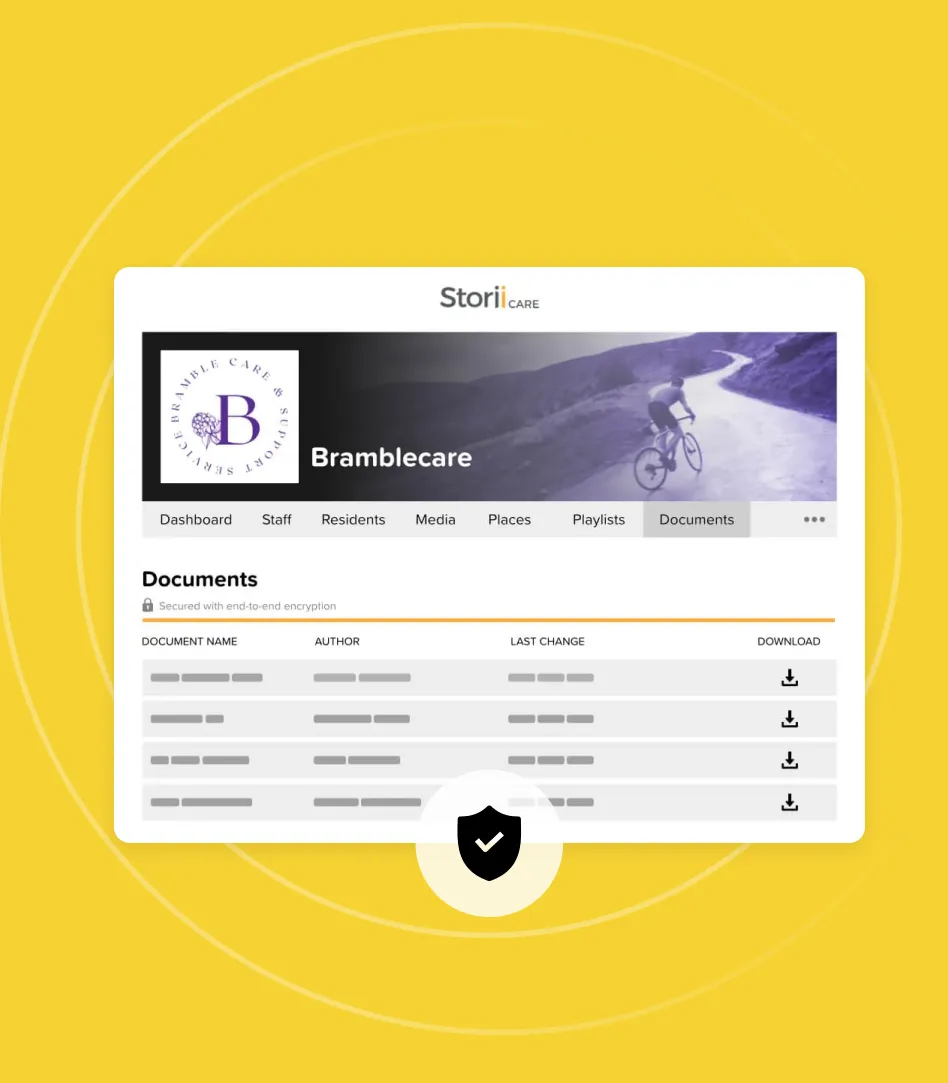Dementia in the Digital World
In a recent interview discussing digital health and care services for elderly adults, the Director of Digital and Service Transformation at ALLIANCE, Zahid Deen, said something quite impactful. Deen said that unfortunately, it is often the users, the people who actually benefit from digital health and social services, whose voices and experiences are overlooked because so much focus and attention is directed towards the processes and providers themselves.
Therefore, it seemed fitting to follow up Mr. Deen’s interview by speaking to a member of the public. A user. You know, someone who would potentially benefit from digital services or other types of technology. That person happened to be Wendy Mitchell.
Wendy Mitchell Shares Her Thoughts on Living with Dementia in the Digital World
Wendy Mitchell didn't touch a smartphone or tablet until she was diagnosed with early onset dementia at the age of 58. Now, at the age of 62, she refers to her iPad and iPhone as her --“lifelines” and she could probably teach me a thing or two. Some may find it baffling that this woman has learned everything she needed to about navigating technology since her dementia diagnosis, but as she explains, “If you have someone helping you and supporting you who is patient, then you can learn new things."
The impressiveness of this woman doesn’t stop there, though. Wendy is the author of The 2018 Sunday Times Best Seller, Somebody I Used to Know. The success of her book was no surprise to me as Mitchell has a way of writing about her life experiences with honesty, humour, and grace. Her popular blog ‘Which me am I today?’ garners thousands of followers, with her openness creating a safe space for those also affected by dementia to find common ground and a network of support. Additionally, Wendy Mitchell is an Alzheimer’s Society ambassador and travels frequently to speak, support, and take part in vital research projects.
Are there any apps you find particularly helpful right now?
Yeah, well, me and my daughters, we use Find My Friends because then they can track me and see where I am. If I don't know where I am, I can just ask them and they can look it up. It makes us both feel safer then.
Oh, the reminders. Reminders. The reminders are going off all day long, telling me to do things. Time to take my medication, time to get the taxi, time to go out, time to come back and everything.
I use my iPad to take pictures when I’m traveling as a way of keeping calm. I take pictures all the way and print off the odd one or two for my memory room. Everyone needs a little corner of their house, a tiny little wall, with photos that make them happy.
My new found friend is Alexa because from my iPad, through Alexa I can switch on my lights when I'm out if I forgot. Also, when I wake up confused, I can ask her to play me some relaxing music or I can ask her what the time is, or what the date is. Things like that. Alexa can bring some reality to waking up sometimes.
Have you gone fully digital now? In your book, you seemed to have quite the system worked out with Post-It notes!
[Laughs] Well, I've still got the Post-It pad next to the bed. I might write something down if my iPad isn't to hand, but writing is difficult now. The coordination of writing is difficult. So, sometimes I can read notes I've written myself and sometimes I can't [laughs]. But I can type perfectly, so that works out better for me.
I've had lots of people write to me and say how they wish they hadn't stopped their loved one from typing. They never even thought to let them continue, but now their loved one can't or doesn’t speak. You wonder if they'd be able to speak if they continued to type. Or at the very least being able to type would help if they can't speak.
I know one woman who used to be a journalist who can't speak anymore. Her husband is sort of mortified that he never put an iPad in front of her to let her type. So that would be really good if there was more of an emphasis on continuing those skills as you get older.
Is there anything technology-wise that you wish were accessible but isn’t yet?
I can’t think of anything specific. There are loads of things that do exist, but they’re not quite right. I've always wanted to put in place a sort of talk-text type app. I am getting used to that way of doing things now. I always think it's important to get used to these things before you need them. But I’ve just not found one to be very…
Accurate?
Well, yeah, accurate and dementia friendly. It's just not worked how it would be good for them to work, you know?
I had it in my head that there was an app being tested for dementia friendly travel. I had some really good conversations with people about that and was supposed to be involved in the research but the dates never worked out for me.
Travel is one thing that's so difficult for many people, but this travel app that would almost be like a person next to you telling you where you got to, where you're going, and when to change bus or train lines. That type of thing. It’s the digital or tech thing I’m looking at with the most hope for the moment.
Are there any tech therapies that have been beneficial to you, or that you see as being beneficial to people living with dementia?
Yeah, there was a study in York. They gave iPads to people who might never have used them before and they had like a social network, or way that people who lived locally could talk to one another. There was one stream for the people with dementia and one stream for their supporters. Apparently, so many of the clinicians refused to ask the people with dementia to take part in the study because they said they'll never learn to use an iPad. But most of them did!
They didn't use the clinicians in the end. Instead, the researchers went themselves and sat with the participants. The comments that those participants gave were amazing. Lots of them were feeling really isolated and they'd never used technology before, but they found this whole new world. They made friends and have since remained friends since the study stopped. So that's wonderful. That is just wonderful.
What role have social networks played in your life since you were diagnosed?
Oh Wow. Well, I never used to do social media. I'm a tweetaholic now. I call it my silent world of conversation because I can type in my own time. I like that people can only write so many words, so I don't ever forget anything I'm reading. Twitter is my ideal place. I don't have distractions from conversations and there's loads of conversations happening, but I can reply when I want and have lots of conversations that I couldn't have in real life.
Do you think doctors and other care support roles should help people get access to things like Twitter, blogs, or other social networks and online resources when they are in the beginning stages of dementia?
Oh, it is so important. It’s so important to learn how to find and use these things simply because if you don't do it at the beginning, it will just become harder and harder to remember what to do.
Right, and I assume you want to be surrounded by things that are familiar and so introducing something that's not familiar can be uncomfortable and kind of pointless once you've reached a certain point.
Yeah, absolutely right.
There's such a huge community of people with dementia on Twitter, which is very comforting if you're newly diagnosed. I know many people newly diagnosed are now going on to Twitter and finding new friends. They’re, you know, finding it's not the end. There's a whole new world out there.
One thing that I was startled by when reading your book was the lack of awareness health professionals seemed to have in terms of pointing people towards assistive technology or other support services. How do you think you address that in terms of preparing the clinical community better? I know that's a big question.
Clinicians are a group of people that have got so much to catch up on. There is no magic tablet or operation for someone with dementia. There is no cure. So to them, there's nothing they can do. It's only just now that it's starting to creep in that there are other ways they can be helpful to the person. You know, they can socially prescribe and all that. For me, it's their language that needs to change most. There isn't anything they can do, but there is so much WE can still do and they don't get that across at the moment.
What sort of advice would you give to someone who wanted to market something as ‘dementia-friendly’?
I've found that dementia-friendly is just a meaningless statement in many organisations because maybe once that initial group of staff have had some awareness training, then they never revisit it. So they have new staff come along and the meaning is lost. It almost takes them back to what they were before they had any sort of training. All anyone has to get their head around really is just good customer service. It's being smiley. It's being patient with someone who is irritated or confused because perhaps they have dementia.
What about for a product, like an app?
Just getting the input of a whole range of people affected by dementia. People are at all different stages, experiencing different types or symptoms, and may be in various care settings. We never lose emotion because that part of our brain is never affected. It always remains in tact for people with dementia. I frequently forget what I’m doing or can’t recall what I’m looking at, but I know I’m enjoying it or I know it makes me feel safe or understood. That’s how I know its dementia friendly.
It’s funny because most of the technology you mentioned as being helpful to you (Alexa, Reminders, Find My Friends, Twitter) weren’t designed to be dementia-friendly, or at least I’m assuming that wasn’t their intended purpose...but they are because they are user-friendly.
Yes, well you’ll hear that what is dementia-friendly is friendlier for everybody!




.png)
.png)
.png)










